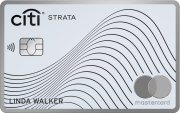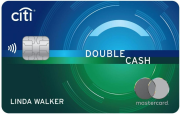The content on this page is accurate as of the posting date; however, some of the offers mentioned may have expired.

The importance of credit education is never questioned, especially when such "hazardous" payment tools as credit cards are made available to youngsters and people with shaky financial standing. The lack of understanding or misunderstanding of some basics - APRs, fees, intro periods, etc. - is often the reason for bad debt that has negative effects on the person's whole life.
One of the most important aspects discussed in any credit education course is credit card fee. One should learn about different types of fees before planning to apply for a credit card online.
Why fees? Because different issuers may charge different fees. Because avoiding the fees may save you hundreds of dollars. And because there are the so-called hidden fees that you may not notice or guess when looking through the fine print.
The basic credit card fee to affect the overall cost is the annual maintenance fee. Though charged only once a year, it may be a hassle for those who like to save on everything. If you have a standard plastic, the one with revolving balance and a common set of benefits, you may have no annual fee or you may ask your bank to waive the fee. Lots of banks agree to waive annual fees when you spend a certain amount in the year or when you prove to be a responsible payer and valuable customer.
In case you hold one of those premium plastics - Gold and Platinum - chances are the annual fee is in there. It is especially true to frequent flyer credit cards which require annual fees to pay for the highly expensive miles reward program.
Application fee is a one-time fee that is charged when you make a credit card application online. It is mostly required by prepaid and secured credit cards and may be explained by the issuers' practice to charge higher risk applicants with more various fees.
Now come the fees associated with transactions:
Balance transfer fee is a certain percentage (usually 1-3%) of the amount transferred and is charged on almost all balance transfers without a maximum cap. Mind it before you request a balance transfer and figure up whether the transfer is reasonable.
Cash advance fee is charged each time you withdraw money from your account. While the fee is not a hefty one, it is always accompanied by cash advance APR which might be distressing. Just avoid making cash advances if possible. Do have some emergency budget or carry some cash with you.
Penalty are insidious and sometimes are unfairly applied to your account. For example you may be charged a late payment fee because the statement arrived too late and you just didn't have the time to pay it. You'll also have to pay the late payment fee if you make less than the minimum payment required.
Over-the-limit fees are tricky, too. A bank may approve a purchase that pulls you over the limit and then charge you for that.
These are the basic credit card fees you should be aware of if you are a disciplined user looking to benefit rather than lose with your plastic.





